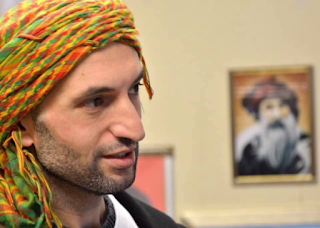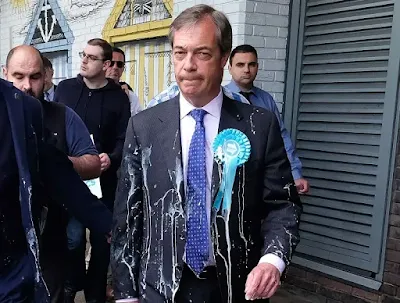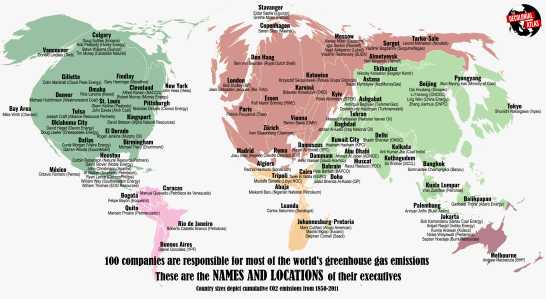Ocalan, the co-founder of the outlawed Kurdish revel group the Kurdistan Workers Party (PKK) who has been in prison on Imrali island since his capture in 1999, issued a letter through his lawyers on Sunday four days after they visited him for the second time this month, to activists taking part in hunger strikes against his prison treatment.
“Dear comrades,
In light of the wide-ranging statements my two lawyers will be making, I expect the protests, especially of the comrades who have committed themselves to hunger strikes and death fasts, to come to an end. I would like to express that your intentions with regards to me have been realized and I present to all of you my deepest affections and gratitude.
In fact, after this point, I diligently hope and expect you to accompany me with adequate intensity and will power.
With lasting affection and regards,
22 May 2019, Imralı Prison
Abdullah Öcalan”
Following the announcement, a representative of imprisoned hunger strikers said that they would be heeding Ocalan's call.
"After the call...we are ending our hunger strikes," Deniz Kaya said in a statement, quoted by pro-PKK news agency ANF.
Previously, Ocalan had been kept in what his supporters called "isolation" since 2016, and no statements or visits were allowed. Until the visit on 22 May, he had not met with his lawyers in eight years.
Since 2018, close to 3,000 people had joined the hunger strike in some 90 prisons in protest at his treatment. Hunger strikers in Turkey traditionally refuse food but take vitamins and salt and sugar solutions, which prolong life. A hunger strike is not a form of protest to be undertaken lightly. It is a last resort when other methods have become impossible. The fact that this has become a regular resort for Kurdish activists is an indication of the extent to which the Kurds have been made to suffer.
Kurds in Turkey, where they have survived through a century of Turkish ethnic nationalism, tie their hopes for a better future to their imprisoned leader. His political ideas have inspired the grassroots, feminist, multicultural democracy that is being created in Northern Syria, and that briefly flowered in the Kurdish autonomous movements of Eastern Turkey, before being brutally crushed by the Turkish army. Öcalan is pivotal to any hopes of a peaceful settlement between the Turkish state and its large Kurdish minority.
The longest-running hunger strike has been by Leyla Guven, an MP for the pro-Kurdish Peoples' Democracy Party (HDP), who stopped eating on 8 November 2018, beginning a historic wave of hunger strikes which today have claimed victory. Ms Güven argued that by isolating Mr Ocalan and by refusing to allow visits from his family or lawyers, theTurkish government has placed major impediments towards maintaining peace in Turkey. Before being transported to hospital by ambulance on Sunday, Guven said the hunger strike had achieved its goal.
"But our struggle against isolation and our struggle for social peace will continue in all areas. This struggle must lead to an honourable peace," she said in a written statement.
The HDP said seven people, six in Turkish prisons and one in Germany, had killed themselves in March in protest against Ocalan's isolation.
Ocalan's lawyers said that though the hunger strikes should end, it was necessary to apply pressure to the Turkish government to get them to restart the peace process that originally began in 2013 and collapsed in 2015.
"Our client stated that if talks were not held in the future, it could be protested by a political struggle, but actions such as hunger strikes and death-fasts should be avoided," they said during a news conference on Sunday.
"He [Ocalan] stated that the main thing is a culture of democratic political struggle and that it is more important for the strikers to be physically, spiritually and mentally healthy."
finally ended their hunger strike.
Politicians, political prisoners and activists around the world had been starving themselves to protest the isolation of their leader a key figure in the Kurdish people’s struggle against their oppressor,
After his capture, Turkey initially sentenced Öcalan to the death penalty. But this was later dropped when Turkey wanted to join the EU. Öcalan now serves life imprisonment in solitary confinement on the heavily fortified İmralı prison island.
In a massive international campaign, solidarity activists around the world have demonstrated, occupied buildings, and contacted politicians and European institutions.There were reports of ill-treatment of hunger strikers at Silivri, Şakran and Tekirdağ prisons. Other reports indicated that, in some cases, authorities had unlawfully limited the hunger strikers’ access to drinking water, sugar, salt, and vitamins.
Despite this people successfully lobbied the European Committee for the Prevention of Torture (CPT), asking it to take action and visit Öcalan in prison. All of these actions amplified the voices of the hunger strikers, making their demands heard, and putting pressure on Turkey.
Turkey has imprisoned Abdullah Öcalan for the last twenty years, keeping him in solitary confinement for much of that time, without access to his family or lawyers. The hunger strikers’ demand was simple: for Turkey to abide by its own law and to lift the isolation.
Turkey finally allowed Öcalan two visits from his lawyers in May. And after months of seemingly ignoring the hunger strikers’ demands, the CPT visited Imrali prison where Öcalan is held. On 16 May, Turkish justice minister Abdulhamit Gül announced that the ban on visits to Öcalan had been lifted.
Imam Sis, 32 who lives in Newport, Wales who based himself at the Kurdish Community Centre on Chepstow Road, had refused food for 161 days. has also announced that he will end his hunger strike, and said “I would like the Welsh Senedd, which was the first parliament in the world to give full support to the hunger strikers.
“Also to Plaid Cymru Assembly Members Delyth Jewell, Leanne Wood and Bethan Sayed, and party leader, Adam Price, for all their support.
“Ending the hunger strike does not mean the end of the struggle against isolation, we will continue to struggle in other forms to ensure isolation is definitively brought to an end.”
Mr Sis - who has lost 25kg (55lb) during his hunger strike - will now be assessed in hospital.
Now that Turkey has agreed to meet the protestors’ core demands, Plaid Cymru – who supported the hunger striker and pressed the Welsh Government to intervene – have hailed a foreign policy victory.
The Welsh Government wrote a letter to Foreign Secretary, Jeremy Hunt, with Mr Hunt also contacted directly by a group of 50 MPs and Assembly Members, which included all Plaid Cymru elected members, and appealed to him to intervene.
The Foreign Secretary replied to Plaid Cymru’s Westminster Leader, Liz Saville Roberts, saying he had asked Turkey to comply with the findings on a report by the European Committee for the Prevention of Torture and Inhuman or Degrading Treatment or Punishment into the conditions in which Mr Öcalan was held.
Plaid Cymru’s Shadow International Relations Minister, Delyth Jewell AM, said: “I am delighted that the Kurdish hunger strikers have secured victory in their campaign to end the solitary confinement of Abdullah Öcalan.
“Many of them have sacrificed their long-term health in order to secure justice for their cause; it’s such a relief that they will not have to sacrifice their lives as well.
“My constituent, Imam Sis, has gone 161 days without food and faces a difficult battle to recover, but I know he will gain strength from the support of well-wishers from across the UK.”
Delyth Jewell AM, who represents South Wales East in the Welsh Assembly, added: “While the campaign was an international one, we in Wales played a crucial part by putting pressure on the relevant actors to do the right thing.
“I’d like to thank everyone who played a part in this campaign, from the Plaid Cymru activists who have been supporting Imam, to politicians across the board who have saved lives by acting decisively.
“My hope is that formal peace negotiations can now resume between Turkey and representatives of the Kurdish nation in order to bring long-term peace for a people who have spent centuries fighting for their lives.”
The Kurdish hunger strikers courage and determination has been an inspiration to many, as their strike ends in victory lets continue to stand in solidarity with the Kurdish people in their struggle, for peace and to ensure that the isolation is not broken again.

















